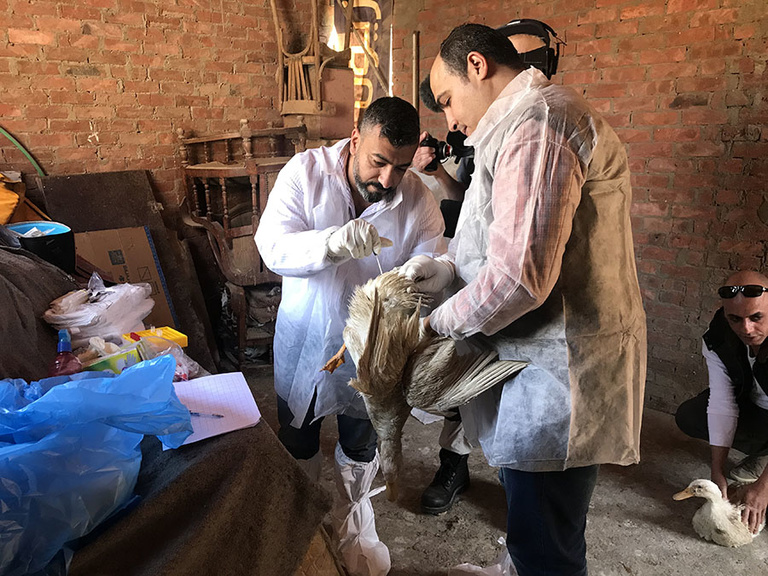
Researchers led by Ghazi Kayali (center) take samples from poultry in Egypt
Ghazi Kayali, PhD, MPH, is part of a global network of scientists dedicated to researching novel viruses transmitted between animals and humans. He earned his doctorate degree in epidemiology from the University of Iowa College of Public Health in 2008. He is the Chief Executive Officer of Human Link, a Lebanese-based non-governmental organization with the mission to design and conduct scientific research and projects in the fields of bio-medicine, public health, environment, economy, and human development aimed at improving global knowledge and enhancing local population livelihoods. He is also an adjunct assistant professor in the Department of Epidemiology, Human Genetics, and Environmental Sciences at the University of Texas Health Sciences Center.
Human Link is contracted by the US National Institutes of Health to conduct influenza and coronavirus research in the Middle East. The NGO collaborates with the World Health Organization (WHO) Collaborating Center on the Ecology of Animal Influenza Viruses based at St. Jude Children’s Research Hospital in Memphis, Tennessee. Human Link currently conducts influenza and coronavirus research in Egypt, Lebanon, Tunisia, Uganda, Benin, Togo, and Morocco. Kayali is also a regional WHO consultant on One Health, Pandemic Preparedness, and International Health Regulations.
Kayali’s work was recently highlighted in the Netflix docuseries “Pandemic: How to Prevent an Outbreak,” and he was featured in a segment on the ABC news program 20/20 that looks at the experts who identify the source of an outbreak, determine its transmission, and work to stop its spread. Kayali recently answered a few questions about his research and the ongoing novel coronavirus pandemic.